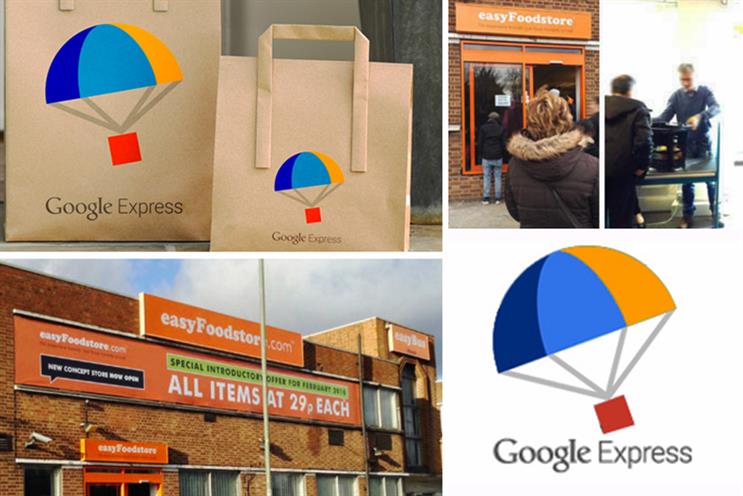The increase of convenience sales is expected to rise by 17% to £44bn over the next five years
In quick succession we've seen Google announce the launch of a new service, Google Express (a same day fresh grocery delivery service to rival Amazon Fresh in San Fransisco and Los Angeles), and easyFoodstore open its doors to the public in the slightly less salubrious Park Royal, West London.
Paperless offices, bookless readers and storeless retail have now become the norm, which makes Google Express’s new venture unsurprising as it evolves to meet new shopping behaviours in a technologically enlightened era. Less expected, perhaps, is to see the easyJet empire investing back into bricks and mortar on the High Street. The real question is why?
The Robin Hood of grocery?
According to easyJet founder Sir Stelios Haji-Ioannou: "This is another way the Easy brand can serve the less well-off… this is a more commercial attempt to sell basic food for 25p per item to those less well-off in the Park Royal area."
Is this really the Robin Hood of grocery, rescuing the poor and needy, or is there a much savvier, more commercial reason behind it?
On the surface, its altruistic intentions come through loud and clear with a simple offer: 76 essential SKUs served up on "no frills" industrial shelving, "No expensive brands, just honestly priced food," is the marketing idea, which allows for a family of four to eat for a mere £15.75 per week. Scratch beneath the surface and it’s a much cannier move that reflects a shift in purchasing habits over the last few years.
As shoppers, we have significantly changed our shopping habits: we are now making 24 different shopping trips each month, across nearly four channels, and have developed inherent habits that retailers are now playing catch up to respond to.
Death of the family weekly shop
One of the most signficant results of the "death of the family weekly shop" has been the increase of convenience sales, expected to rise by 17% to £44bn over the next five years.
The discounter appeals to a much broader demographic
Shoppers now tend to buy what they need, more frequently, in smaller stores instead of bigger and more speculative shops at hypermarkets. Changing lifestyles have contributed to the shift, with the elderly and singletons favouring a basket over a trolley, and busy shoppers electing to join them in a rush to get round in the shortest time possible, all making the 76 easyFoodstore SKUs a no-brainer.
As such, top up shopper missions are now the number one driver as smart shoppers cherry pick their way through a portfolio of stores, from the high end to the discounters, in a relentless quest to match and exceed on value, and get out in record time.
The discount sector boom
This desire for value, initially borne from careful habits developed out of necessity, has become entrenched with people realising they don’t have to pay a lot to get good quality products. Far from being a shop just for people struggling to make ends meet, the discounter appeals to a much broader demographic, with a quarter of its shoppers coming from the middle classes enjoying feeling savvy.
No surprise that the discount sector (from Poundland to Aldi and Lidl) has grown 48% over the past five years as shoppers buy into the genuine honesty of straightforward everyday pricing strategies versus the 'opaque' costs of their bigger rivals.
It’s indisputable that changing shopping habits have forced retailers to rethink their offers and deliver services that meet the needs of today’s shoppers at both ends of the scale. Looking at the two contrasting offers, Google Express and easyFoodstoreonline, it will be interesting to track the progress of the two ventures.
If the first week is anything to go by, easyFoodstoreonline may be the one to watch as it had to close its doors (temporarily) almost as quickly as it opened them as shelves were stripped bare by eager shoppers.


